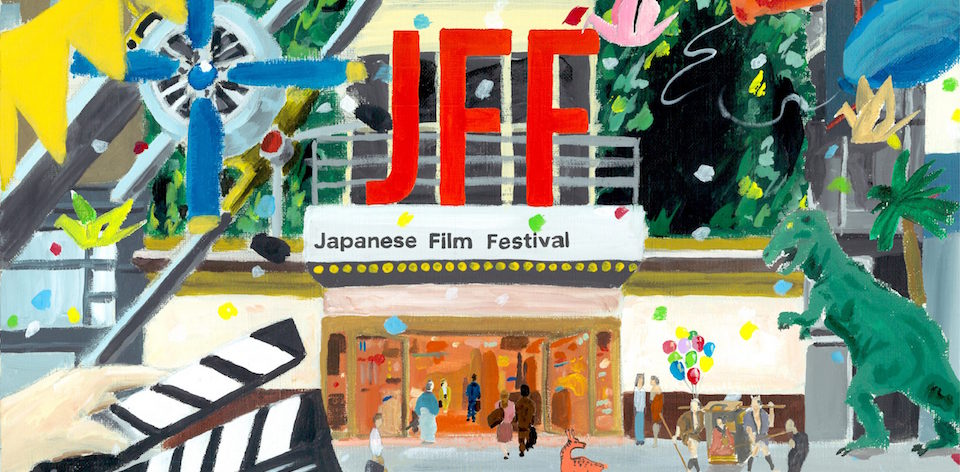A difficult year is almost over, but we can’t say goodbye without the Japanese Film Festival. JFF Plus Online runs from now until 13 December across Australia and New Zealand’s interwebs.
In a year of cinematic cancellations and pandemic production problems, it’s been comforting to have so many festivals step up to keep us indoors and entertained. JFF has been a staple in Australia for decades, so they weren’t going to let us go without some new and classic material.
As previously announced, a collection of over 30 new, contemporary favourites, short animations and classic cinema pepper the week-long online festival, one that’s making its way around the world between November and March next year.
To enjoy the movies, simply go to watch.jff.jpf.go.jp, sign up for free and watch as many films as you can consume in a week. Here’s a few that we recommend!

Project Dreams – How to Build Mazinger Z’s Hangar (2020)
Mazinger Z is one of the more recognisable anime robots in Japan, and this might just be the most novel spin on the influential 1970s cartoon. Probably the first film based on the Venn intersection of anime and a real life research paper, Tsutomu Hanabusa presents a fantasy adaptation of the techniques involved in building the famous underwater hangar in the real world. Plus: if there’s one thing we love, it’s a Japanese film with an incredibly long title.
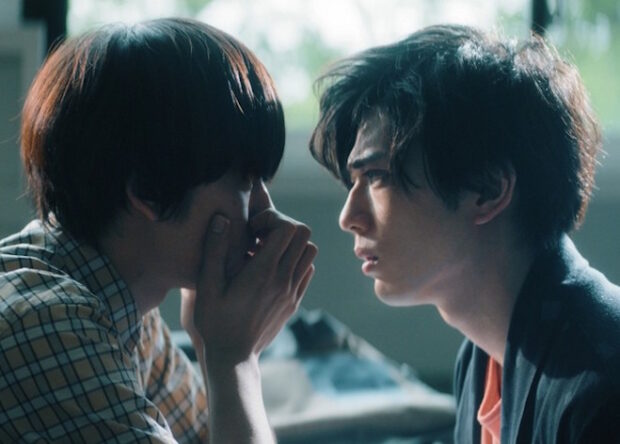
Our 30-Minute Sessions (2020)
Films like Solanin and Little Nights, Little Love are among my favourite slice-of-life/band-related Japanese films. It’s a very specific sub-genre, but I’ve got a type, okay? Backed by a terrific soundtrack and an engaging high concept, I was enchanted and toe-tappy. Next stop: Ringo Fes. 2021!
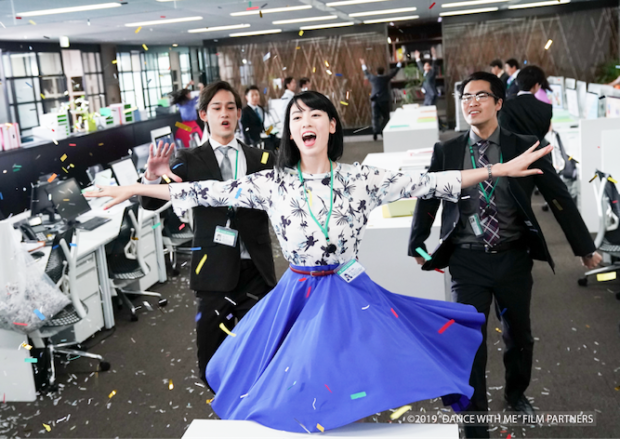
Dance with Me (2019)
Well, I had a ball with this at the Japanese Film Festival last year. It’s a crazy blend of musical, road trip and social satire with a light (but effective) touch. Shizuka Suzuki (Ayaka Miyoshi) works for a large company in which Murakami-san (Takahiro Miura) is adored by all the administrative staff. After a chance encounter with a hypnotist (the legendary Akira Takarada), she becomes compelled to dance whenever she hears music. Ayaka Miyoshi is wonderful and Yuu Yashiro is like Japanese version of peak Melissa McCarthy.
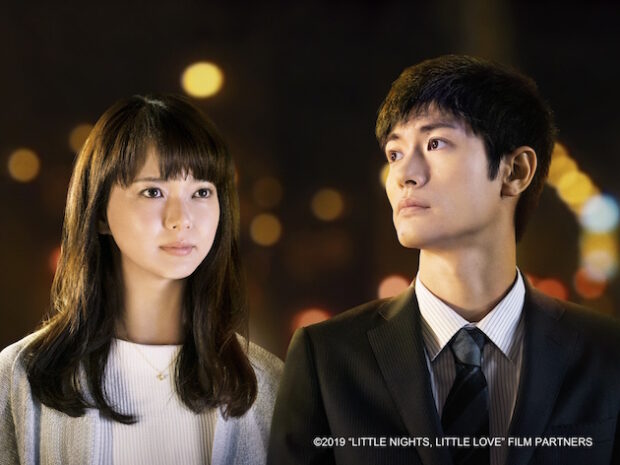
Little Nights, Little Love (2019)
Speaking of which, this was one of my favourite films from last year’s festival. A multi-layered narrative (based on the collected short stories “Eine Kleine Nachtmusik” by Kotaro Isaka) that ponders big questions with little stories is an absolute delight – and has a catchy theme song too! It’s backed by delightful performances from Mikako Tabe, Haruma Miura and Erika Mori in particular.

Tremble All You Want (2017)
Director Akiko Ohku continues to make a name for herself, more recently with My Sweet Grappa Memories. Audience Award-winner at the last Tokyo International Film Festival, this adaptation of Risa Wataya’s novel stars Mayu Matsuoka (Chihayafuru, Blank 13) as Chi, a young woman who spends all day looking up extinct species on Wikipedia. At least until colleague Ni (Daichi Watanabe, Asako I & II) confesses his feelings for her.

Peace (2010)
The films of Kasuhiro Soda, like the terrific Oyster Factory or Inland Sea, are always the most gentle and observational of documentaries. He also loves cats. This personal story focuses on Soda’s father-in-law Kashiwagi Toshio, a driver for the elderly and disabled in Okayama City. His mother-in-law Hiroko runs a non-profit organization, and their garden is full of stray cats. This is peak Soda.
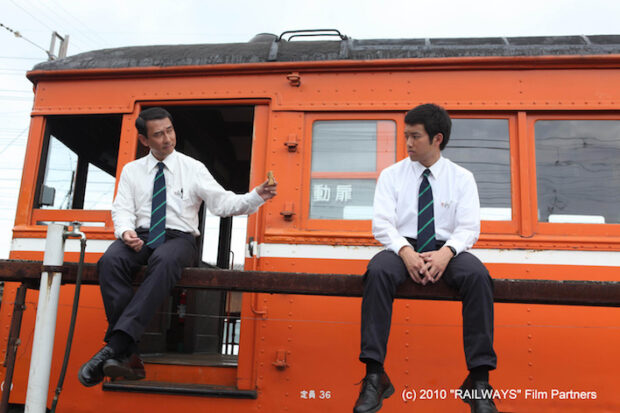
Railways (2010)
There will always be a special one for us. Back at the 15th JFF in 2011, where we somehow reviewed a staggering 28 films in the real world, Yoshinari Nishikôri’s film was one of the films that reaffirmed everything that I love about Japanese cinema. A more leisurely paced film about a Japanese salaryman who decides to go for his lifelong dream of becoming a railway driver. Given the reputation for punctuality in Japanese trains, this doesn’t sound like an easy job. Cue the words ‘heart-warming.’
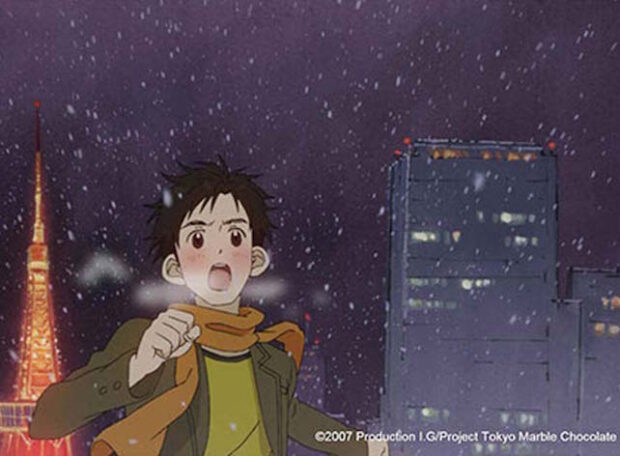
Short animation
A wonderful collection of short films and features including Takeshi Yashiro’s stop-motion animations, a series of Production I.G shorts such as Li’l Spider Girl, and the 2007 Christmas-themed Tokyo Marble Chocolate. ‘Tis the season, after all!
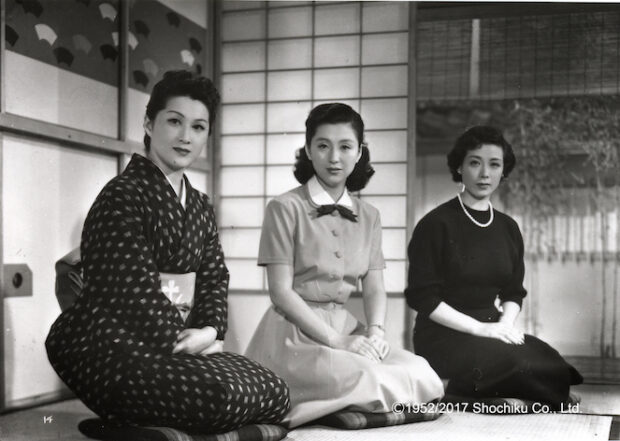
The Flavour of Green Tea Over Rice (1952)
So, when you are given the opportunity to see master Yasujiro Ozu’s films, the answer is always yes. This domestic comedy by Ozu is about a couple having marital difficulties, and their niece who uses her aunt and uncle’s troubles as her excuse for not attending arranged marriage interviews.
You can also see more at the classics program lined up for you in Canberra, Sydney and Brisbane cinemas (yes, physical ones!) throughout December and beyond, including Japanese New Wave essentials Diary of a Shinjuku Thief (1969), Eros + Massacre (1970) and early LGBTQI+ film Funeral Parade of Roses (1969). Plus Nobuhiko Ōbayashi’s crowd-pleasing weirdness in House (1977) and his earlier short film Emotion: The Dracula We Once Knew (1967). Check out their website for more details.

